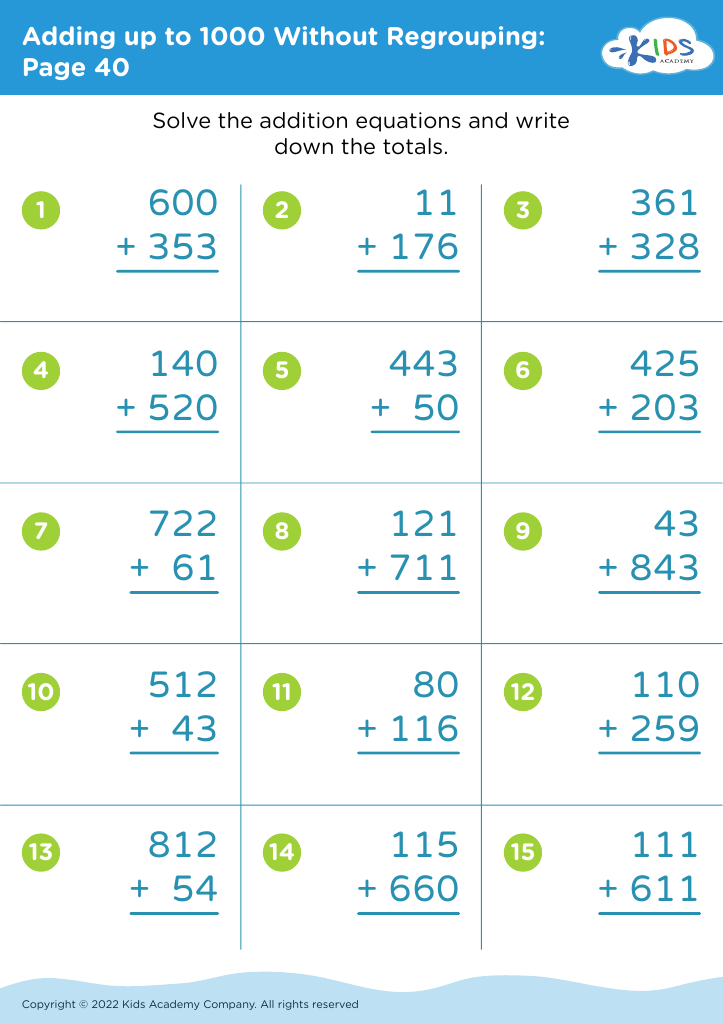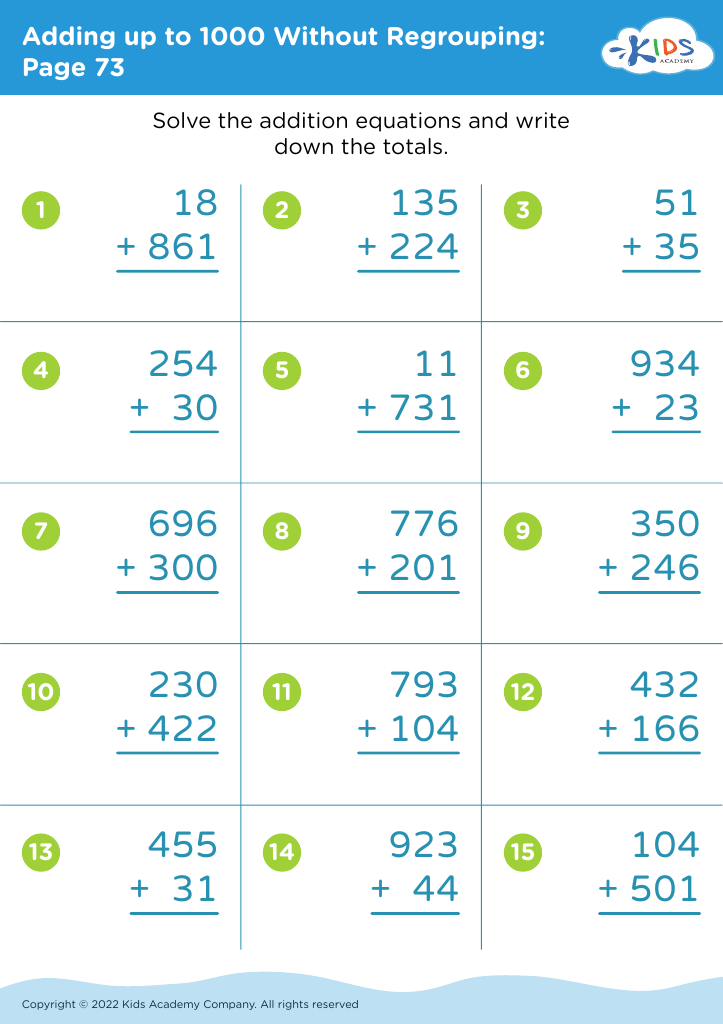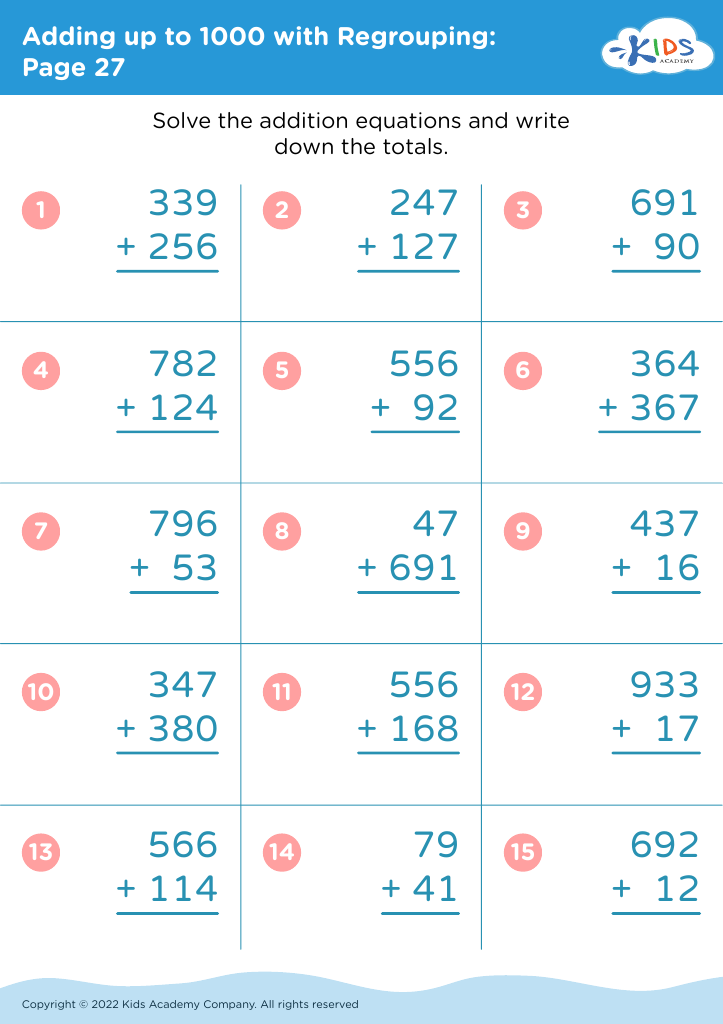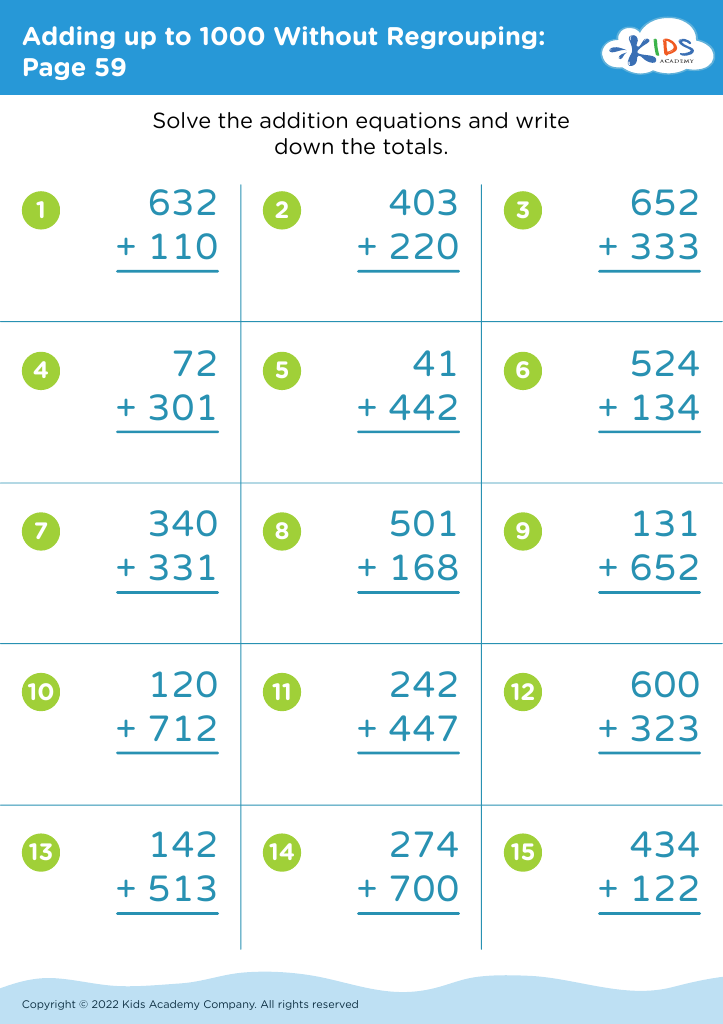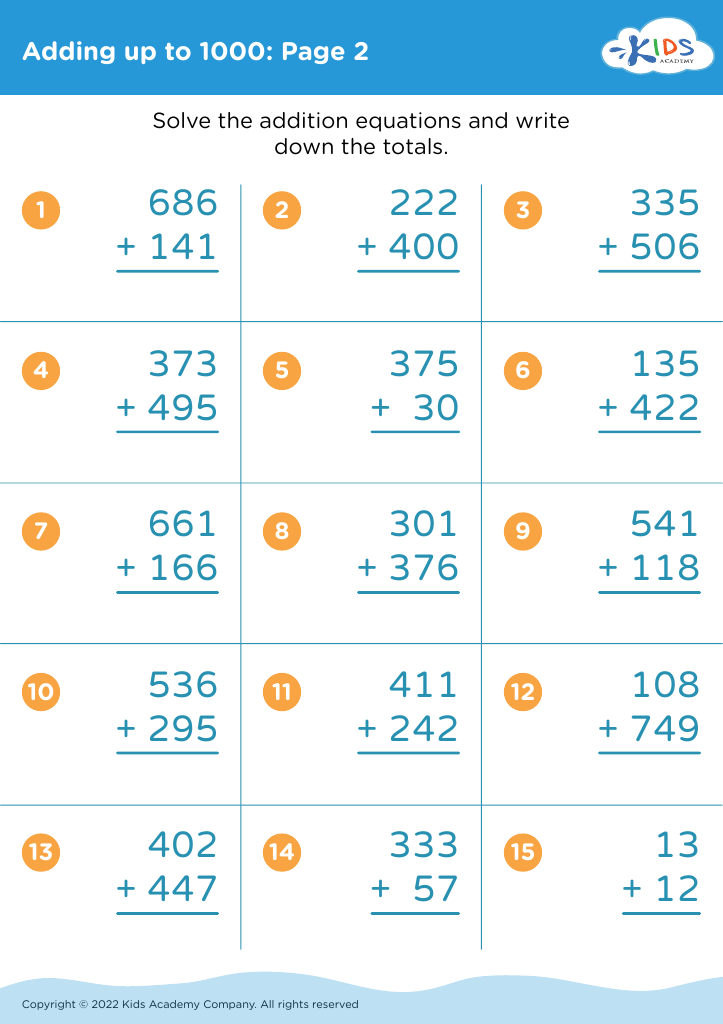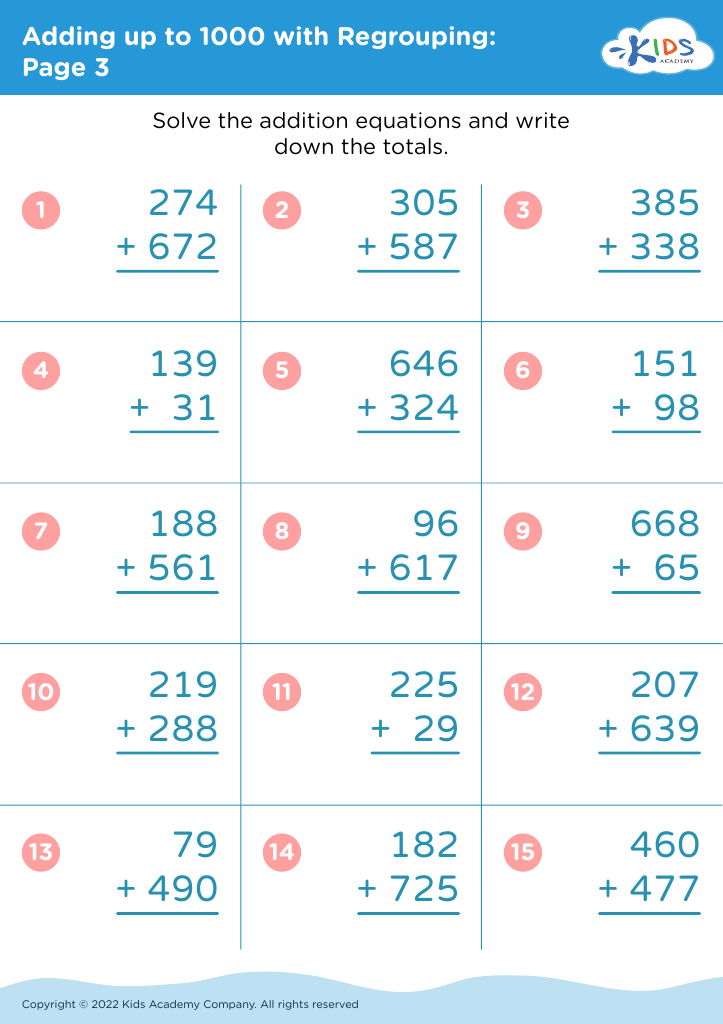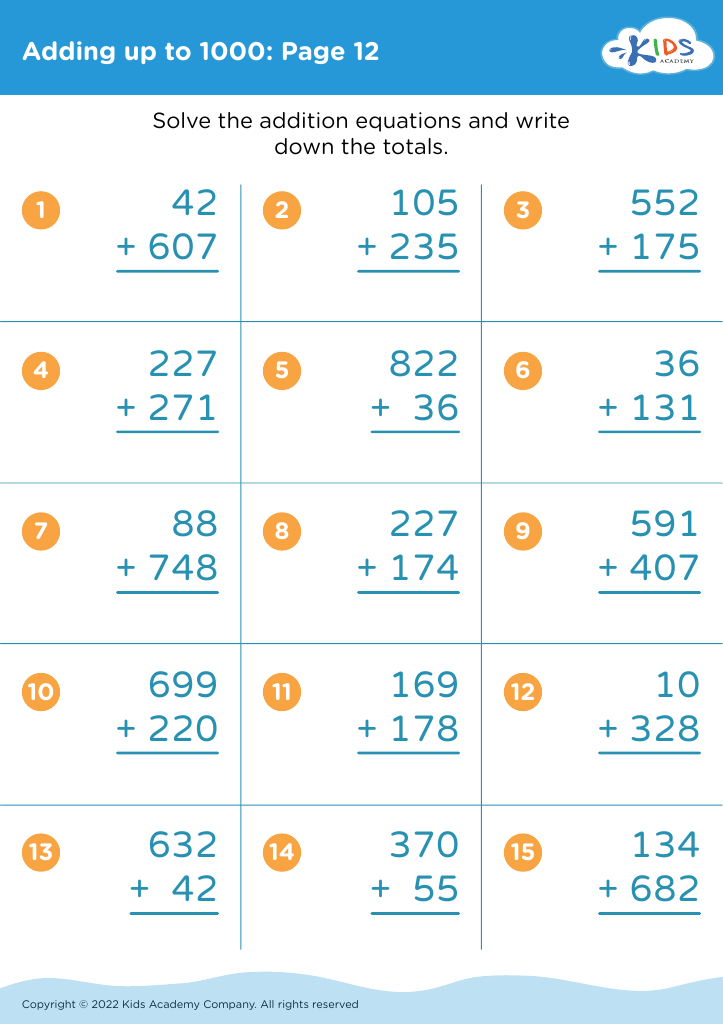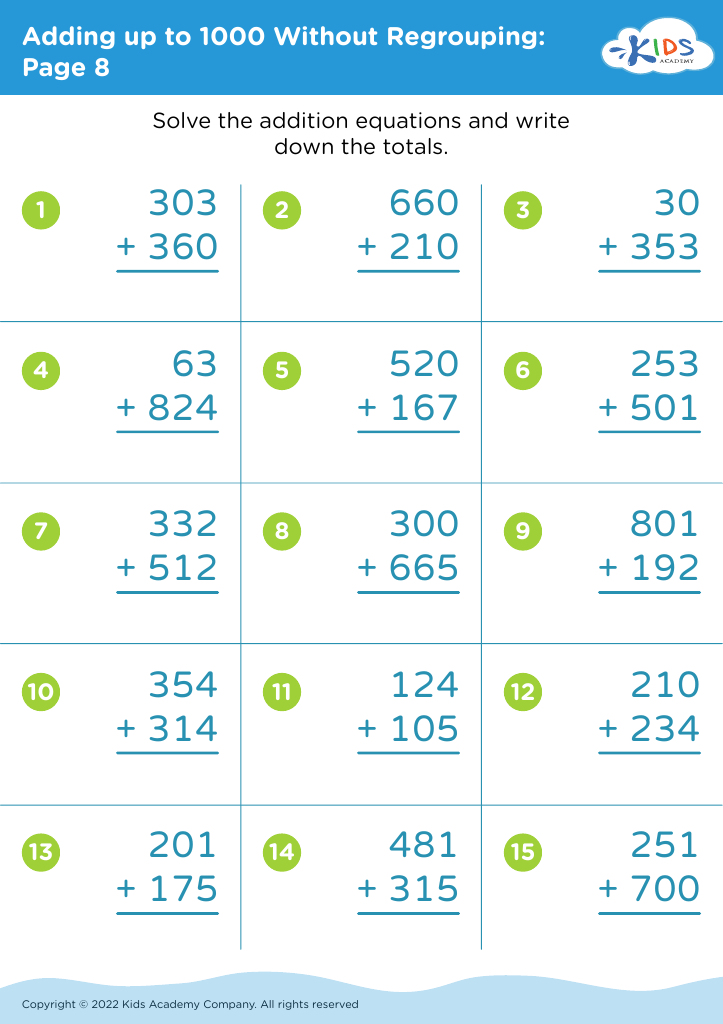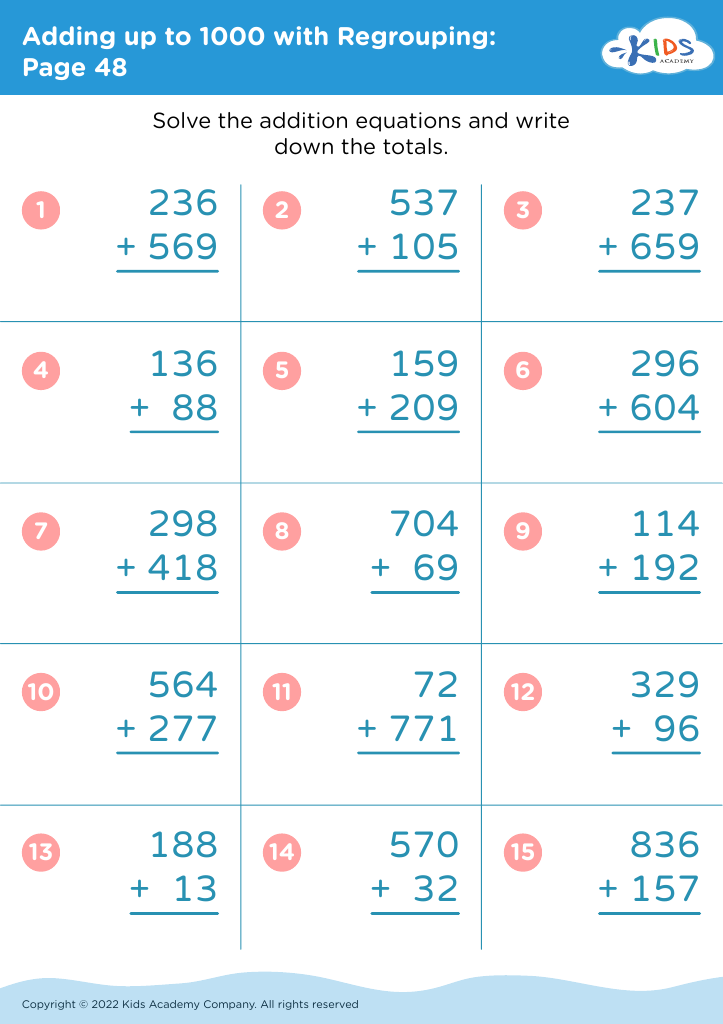Improve reading skills Adding up to 1000 Worksheets for 8-Year-Olds
13 filtered results
-
From - To
Boost your child's reading skills through engaging activities designed for 8-year-olds! Our "Improve Reading Skills" section offers a comprehensive collection of worksheets featuring 1000 additions involving numbers up to 1000. Each task encourages kids to read, comprehend directions, and apply math knowledge, seamlessly integrating reading with arithmetic practice. By challenging your child to solve problems while enhancing their reading skills, they will develop critical thinking and literacy in an enjoyable way. Dive into our printable worksheets and watch as your young learner flourishes in both reading and math proficiency, setting a solid foundation for future educational success!
Improving reading skills for 8-year-olds is essential for their overall academic success and personal development. At this age, children are transitioning from learning to read to reading to learn, which significantly impacts their ability to understand and engage with various subjects. When children enhance their reading skills, they improve their comprehension, vocabulary, and critical thinking, all of which are crucial for grasping complex concepts in mathematics, science, and social studies.
Additionally, proficient reading lays the groundwork for a lifelong love of learning. It enables children to explore new ideas, cultures, and perspectives, promoting empathy and creativity. Strong reading skills also enhance communication, helping children express themselves effectively both in writing and verbally.
For parents and teachers, prioritizing reading skills allows for fostering a nurturing and supportive environment where children can thrive. Children with advanced reading abilities tend to have higher self-esteem and greater motivation to tackle challenges. By emphasizing reading, parents and teachers equip young learners with the tools needed to navigate not only their current educational landscape but also future academic pursuits. Supporting reading development ultimately contributes to producing informed, capable, and engaged citizens who can positively impact society.
